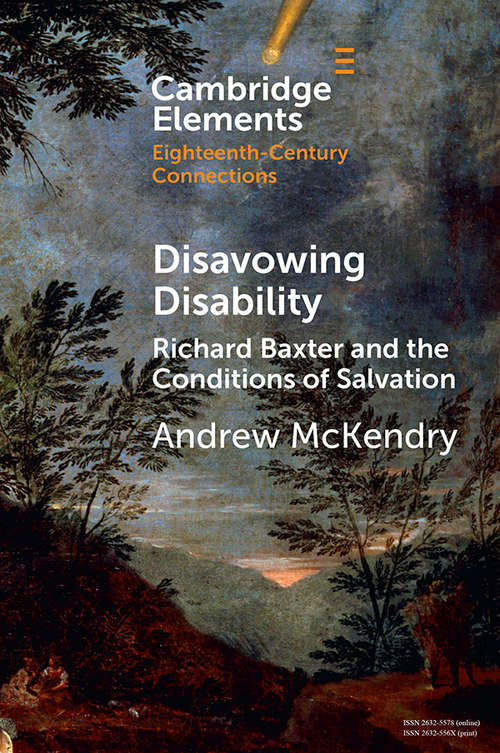Disavowing Disability: Richard Baxter and the Conditions of Salvation (Elements in Eighteenth-Century Connections)
By:
Sign Up Now!
Already a Member? Log In
You must be logged into Bookshare to access this title.
Learn about membership options,
or view our freely available titles.
- Synopsis
- Disavowing Disability examines the role that disability, both as a concept and an experience, played in seventeenth-century debates about salvation and religious practice. Exploring how the use and definition of the term 'disability' functioned to allocate agency and culpability, this study argues that the post-Restoration imperative to capacitate 'all men'—not just the 'elect'—entailed a conceptual circumscription of disability, one premised on a normative imputation of capability. The work of Richard Baxter, sometimes considered a harbinger of 'modernity' and one of the most influential divines of the Long Eighteenth Century, elucidates this multifarious process of enabling. In constructing an ideology of ability that imposed moral self-determination, Baxter encountered a germinal form of the 'problem' of disability in liberal theory. While a strategy of 'inclusionism' served to assimilate most manifestations of alterity, melancholy presented an intractability that frustrated the logic of rehabilitation in fatal ways. This title is also available as Open Access on Cambridge Core.
- Copyright:
- 2021
Book Details
- Book Quality:
- Publisher Quality
- ISBN-13:
- 9781108912709
- Related ISBNs:
- 9781108823128
- Publisher:
- Cambridge University Press
- Date of Addition:
- 07/13/21
- Copyrighted By:
- Andrew McKendry
- Adult content:
- No
- Language:
- English
- Has Image Descriptions:
- No
- Categories:
- Literature and Fiction, Language Arts
- Submitted By:
- Bookshare Staff
- Usage Restrictions:
- This is a copyrighted book.
